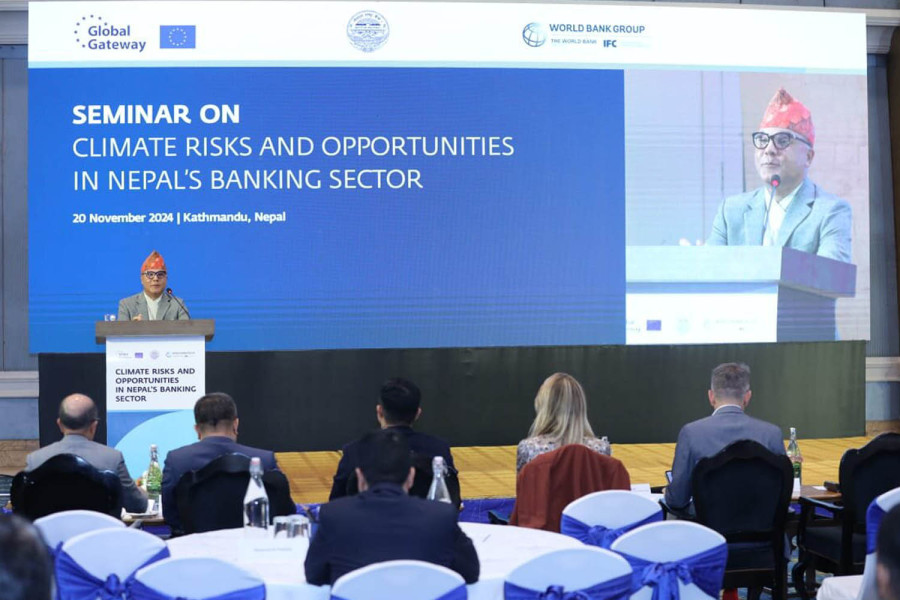Climate & Environment
Seminar held on climate risks and green finance opportunities in banking
Participants stress the need for a regulatory framework to boost Nepal’s green finance market.
Post Report
Participants at a seminar on climate risks and opportunities in Nepal’s banking sector discussed challenges posed by climate change and the need for a regulatory framework to promote green finance.
The event was jointly organised by the Nepal Rastra Bank (NRB) and International Finance Corporation (IFC), with support from the European Union (EU), as part of the regional initiative ‘Accelerating Climate Smart and Inclusive Infrastructure in South Asia’ (ACSIIS).
The organisers said that the seminar disseminated findings from a Climate Finance Risk Exposure Assessment and facilitated discussions on risks, opportunities, and potential steps to develop a regulatory framework for green finance in Nepal.
“A well-defined and structured regulatory framework to develop a green finance market will enable Nepal’s financial sector to channel private sector capital towards climate-related projects, which will contribute to achieving our climate commitments,” said Bam Bahadur Mishra, deputy governor of NRB. “With support from the World Bank Group, NRB will work with the banking sector to strengthen Nepal’s financial sector to adapt to the growing challenges of climate change.”
David N. Sislen, regional country director for the World Bank, said that climate change poses a significant threat to financial stability but also offers unique opportunities. “By helping integrate climate risks into operations, we can together build a more sustainable banking sector,” he said. “Making a difference on climate will require coordinated action between the public and private sectors, and the financial sector is central to that work.”
Nepal is highly vulnerable to climate change, with its GDP projected to shrink by 7 percent by 2050 due to unchecked impacts, according to the World Bank.
Jose Luis Vinuesa-Santamaria, head of cooperation at the EU, reiterated the EU’s commitment to supporting Nepal’s climate-resilient future. “Green finance fits within the EU’s Global Gateway approach, which mobilises private capital for climate and sustainable development projects,” he said. The strategy involves technical assistance, risk-sharing instruments, and de-risked funds to support sustainable infrastructure and green finance projects.
IFC Country Representative Babacar S. Faye highlighted the importance of climate finance for Nepal’s green growth. “This will help the country build a greener economy that fosters sustainable growth and resilience,” he said.




 13.58°C Kathmandu
13.58°C Kathmandu










